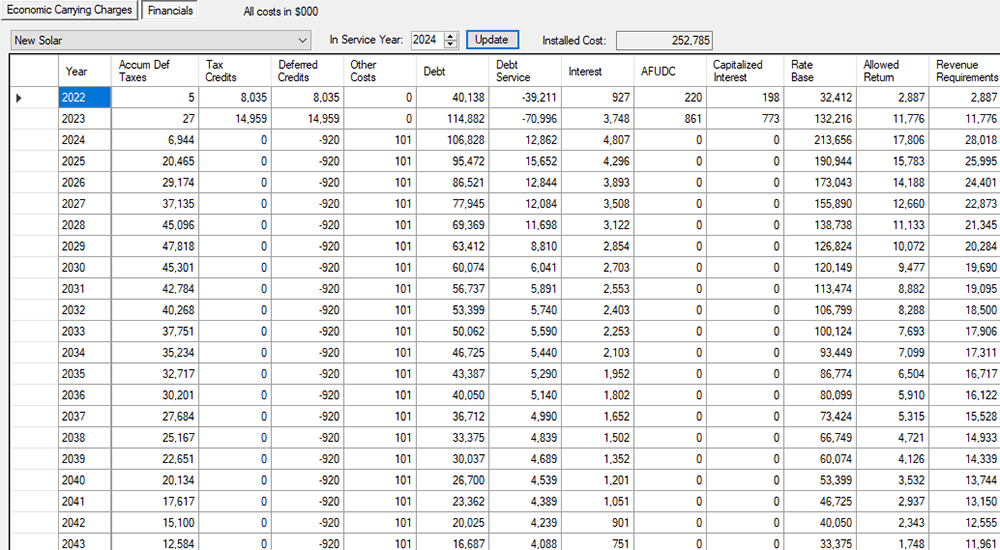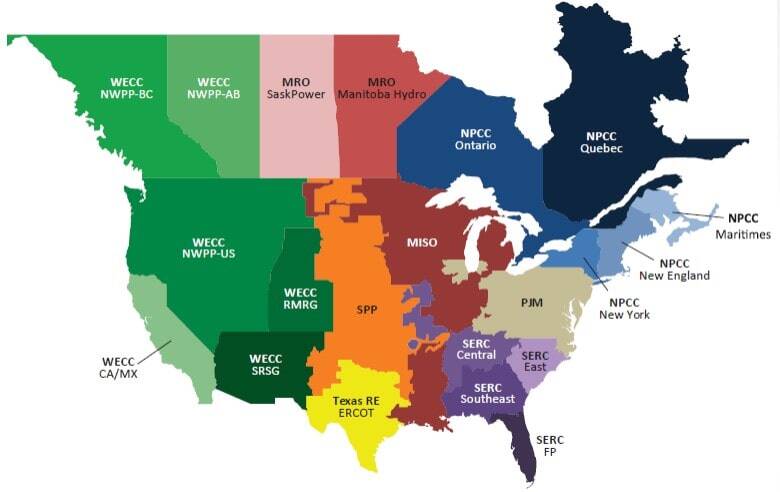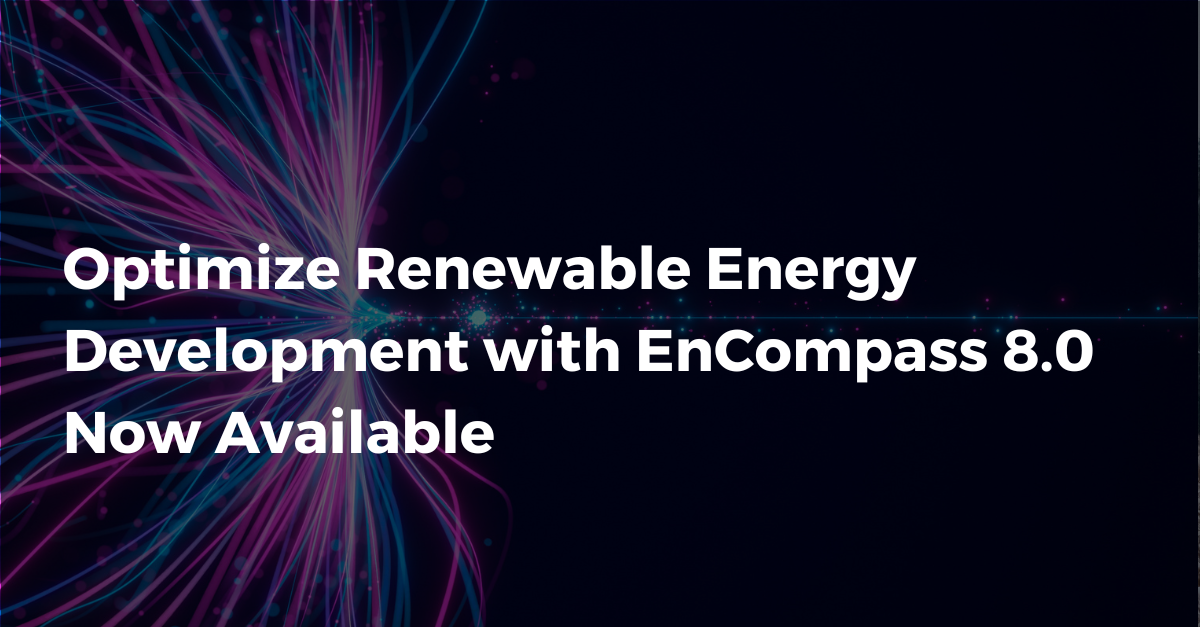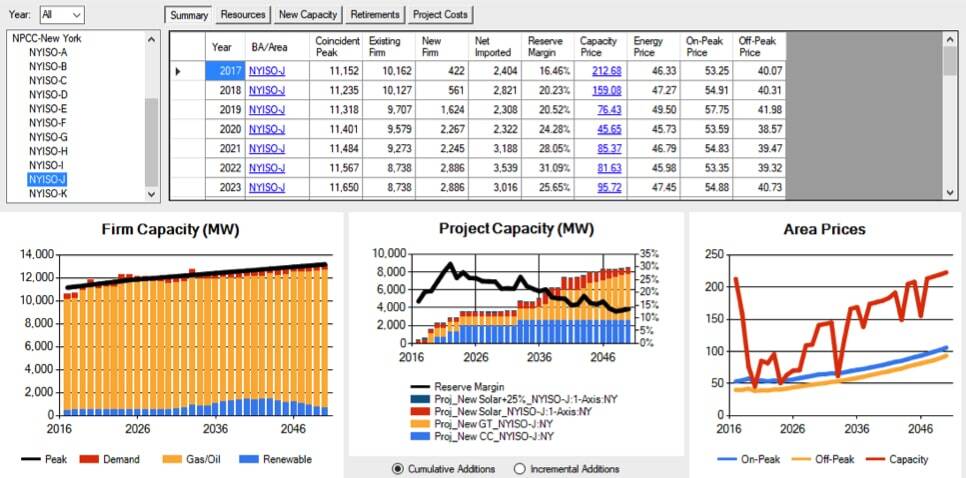Power Forecasting Software
Energy Price Forecasting Software
EnCompass uses a methodology that’s proven and accepted for forecasting wholesale power market prices. The energy price forecasting software considers the fundamentals driving today’s market and how the markets will change based on future regulations, investment decisions, and the availability of natural resources.
EnCompass, together with the Horizons Energy National Database, can produce accurate price forecasts under expected conditions and multiple future scenarios. Price forecasts can include detailed energy and ancillary service components for mid-term (one month to three years) trading and budgeting purposes as well as long-term (out to 30 years) energy and capacity forecasts to support capital investment decisions.


Energy and Ancillary Prices
EnCompass can forecast hourly and sub-hourly energy prices. It co-optimizes regional ancillary service requirements along with area load to ensure enough resources are available for uncertain events. You can set contingency reserves with both a spinning (responsive) and a non-spinning (supplemental) component.
Regulation reserves are defined with up and down requirements, and you may restrict resources that provide regulation dispatched within a given capacity range. Reserve regions may overlap so that subareas must maintain a minimum level of reserves besides market-wide requirements, or they may span multiple balancing authorities to provide reserve sharing.
EnCompass can dynamically adjust energy and ancillary bids to account for start-up and no-load costs and minimize the amount of uplift to make generators whole.
The user interface is easy to use and offers a wide breadth of energy modeling features.
Capacity Prices
Forecast annual capacity prices using the same type of methodology in PJM and New York, including downward-sloping demand curves. New capital projects and resources eligible for retirement will submit capacity bids to recover fixed operating and capital carrying costs, less any profits from the energy and ancillary service markets.
If you don’t model any capacity market or if there are still unrecovered costs, EnCompass dynamically adjusts energy and ancillary service bids, similar to the scarcity pricing mechanism used in ERCOT.
Each balancing authority modeled may have a reserve margin requirement set that is satisfied based on the firm capacity of existing resources and new capital projects. In addition to the normal zonal transmission constraints, each zone may have net capacity import and/or export limits set. This could potentially force capacity to shift into transmission-constrained regions like the New York ISO Local Capacity Requirement (LCR) and the PJM Locational Deliverability Area (LDA).


Horizons National Database
One of the biggest challenges in forecasting long-term market prices is developing a robust dataset for the wholesale power market. Horizons Energy, an Anchor Power Solutions affiliate, provides a comprehensive EnCompass database for North American power markets.
Horizons Energy has benchmarked the 78 distinct zonal areas included in the National Database, representing hourly demand and over 20,500 generation resources. The database contains individual market rules and zonal transmission costs/limits. Underlying technology-specific detail includes multiple block offer curves, start costs, minimum up/down time for thermal resources, hourly representation of wind and solar resources, pondage-based hydro, and interruptible demand.
The database also includes Horizons Energy’s 30-year forward views of fuel markets, environmental compliance, and new resource economics.
Public Policy Analysis and Production Cost Modeling Software
When modeling large regions or the entire US, you can use EnCompass to evaluate the impacts of policy changes related to emissions, renewables, transmission investment, fuel infrastructure, or any other aspect of energy policy. Rather than focusing strictly on market prices, the software’s detailed analysis includes outputs such as total emissions, fuel consumption, generation by technology, reliability, and total production costs. You can enforce annual limits on a national basis for carbon limits and renewable energy requirements as well as dynamic supply curves for fuels like coal and natural gas.

MORE INSIGHTS

What Are Colocation Data Centers, and How Can You See Their Impact on the Power Grid?

Optimize Renewable Energy Development with EnCompass 8.0 Now Available








